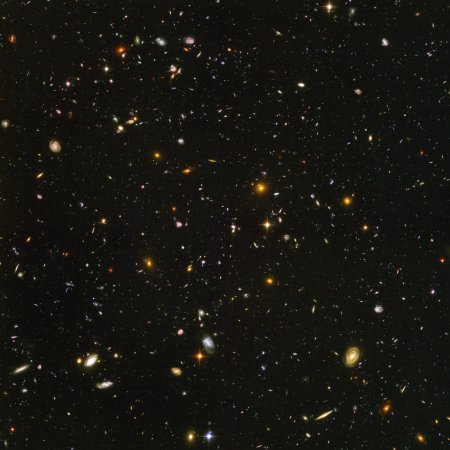On the Importance of Rational Wonder
When you read about secularism and Humanism, you read a lot about reason, compassion, anti-dogma, tolerance, free thought and free speech – and lots of other wonderful things.
But one thing you don’t read much about is wonder itself.
I’ve said before that Humanism and secular morality still have a long way to go to challenge the established religious ideologies in the world. And one reason is they’re still couched largely in dry, rational language.
That’s understandable – not only is Humanism a movement that is founded on the principles of reason, but the early adopters are typically those who have embraced reason of their own accord and only then found their way to Humanism.
This means they’re not normal. Most folk live their lives, happily believing what they believe. Few people voluntarily shrug off the warm embrace of their cultural and ideological norms to follow the rocky path of reason to unknown lands. It can be a harrowing journey, and it can lead to not insubstantial angst.
Yet Humanism is couched in its own kind of revelationary language – that of reason. It appeals to the people who have already made the emotional leap to give sovereignty to reason. And it doesn’t appeal to those who find reason emotionally unappealing, who believe elevation is a religious experience. It’s not.
This is why I think wonder is central to any future secular morality, Humanism included.
Wonder is tool already employed by supernaturalist religions, but it doesn’t belong only to them. Anyone who has gazed into the night sky, peered through a microscope, lingered over a sunset or pondered the nature of DNA or prime numbers has experienced wonder. And it’s natural wonder. Rational wonder.
It’s this kind of wonder that inspires reverence towards the natural world, and that humbles us into seeing that we’re just a bit piece in this cosmic puzzle. It’s that kind of wonder that we can share with others and which brings us closer together. It’s that kind of wonder that can inspire an entirely naturalistic religious experience.
Wonder is also crucially important because it reminds us that we don’t have all the answers. Our best reckoning and scientific enquiry can’t tell us how the universe began, or what exactly life is, or why the universe is just the way it is, or why strawberries taste like strawberries. Yet, just because we don’t have the answers, doesn’t mean the answer must come down to some supernatural being.
Conversely, wonder also erodes our complacency in taking our existing knowledge for granted. Knowing that all elements on Earth heavier than carbon – including the iron in your blood – were formed in the cataclysmic death throes of a giant star doesn’t make that fact any less astounding. We should revel in this knowledge, share the wonder of this knowledge, not just chalk it up on the board and move on.
Humanism needs to be participatory, not just couched in words. It needs to be something people can experience, something they can do. And something they can share. A Humanist ritual could be as simple as going to the observatory. There is nothing a cathedral can offer in terms of wonder that an observatory can’t.
Let’s think beyond just reason, and beyond just our opposition to dogma and the supernatural. Let’s think about what we want to engender. And besides reason, we need wonder.

6 Comments
James Gray · 8th March 2011 at 8:49 pm
This reminds me of the idea Dawkins has that science should be embraced for its own sake and the spiritual feelings it can arise. The language used be Carl Sagan might be an appropriate way of appealing to our emotions and inspiring us.
GTChristie · 9th March 2011 at 10:59 am
Sagan used to say things like “even the equations are beautiful.” And of course his “Cosmos” show back in the 70s was all about the wonder of it all, so he had some credibility there.
But if you think about it, the first thinking humans who created the proto-religions were simply rationalizing the wonder of it all. An incredibly starry sky. A certain symbolism detectable in nature — an object can “mean” something else, such as “power” in the bear, “timidity” in the rabbit, etc. Of course it was all myth and superstition, but it was not really plain ignorance. It was a search for meaning in the “blooming buzzing confusion” — as soon as we were able to appreciate the power of nature, we began to worship it. And that is wonder on steroids. The point being: the wonder you speak of is natural to humans and the modern religions are simply progressed elaborations of the impulse. I think it could be said we are spiritual by nature. So it shouldn’t be difficult to tap into that, in our secular philosophy. It’s all a matter of presentation.
mikekpr · 1st April 2011 at 12:23 am
Just came across this, excellent. Reminds me of a post I did last year that got a predictable reaction from some religious people… http://traversingtherazor.wordpress.com/2010/11/08/topic-everything/
baalbek.org » Reason, Humanism and a sense of wonder · 10th March 2011 at 10:30 am
[…] Tim DEAN on the importance of sharing the experience of wonder at the universe around us. […]
baalbek.org » 4/3 – 14/3/11 · 17th June 2011 at 7:07 am
[…] Tim Deanon the importance of sharing the experience of wonder at the universe around us. […]
Reason, Humanism and a sense of wonder | baalbek.org · 28th November 2012 at 6:36 am
[…] Tim Deanon the importance of sharing the experience of wonder at the universe around us. […]